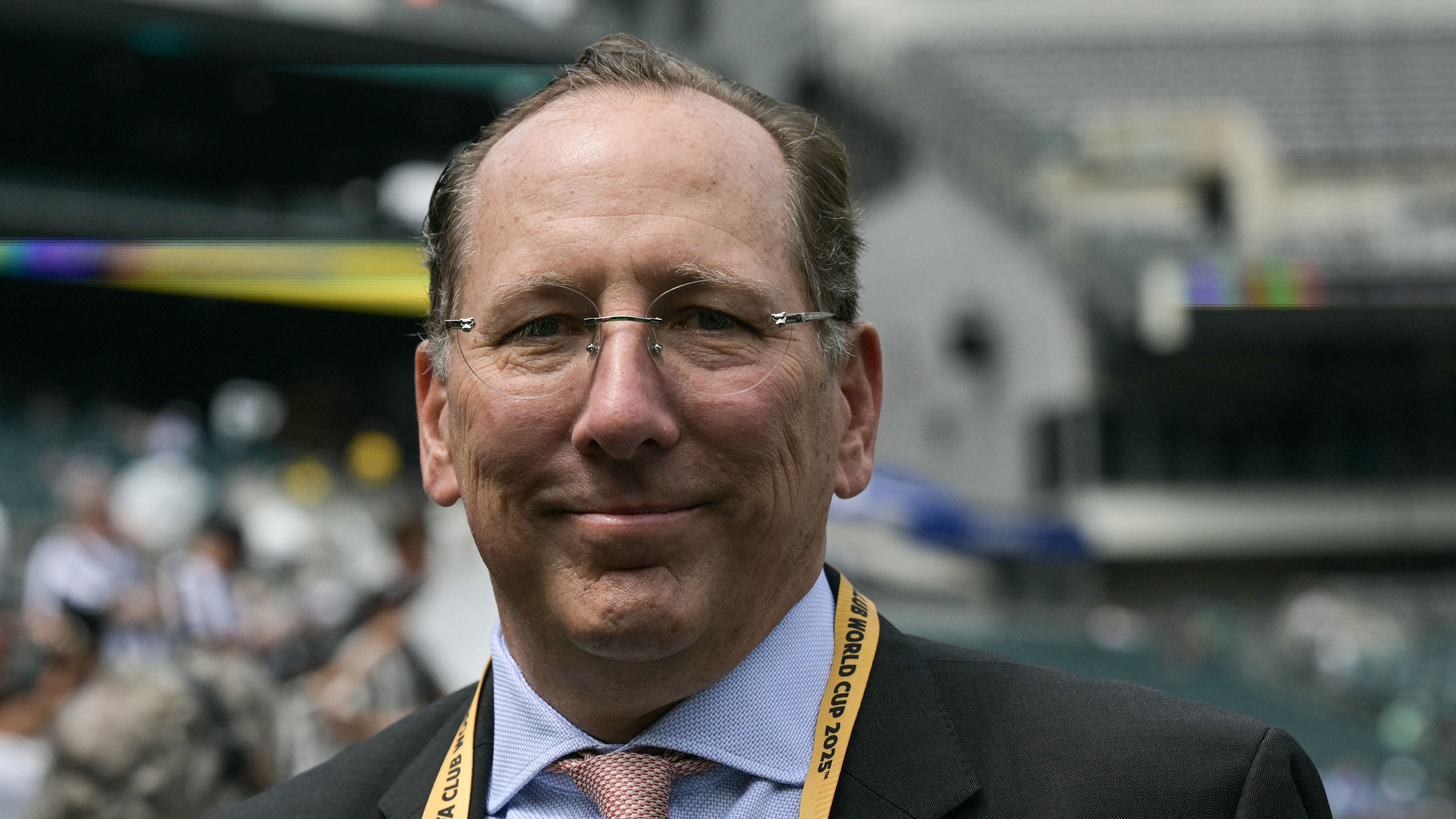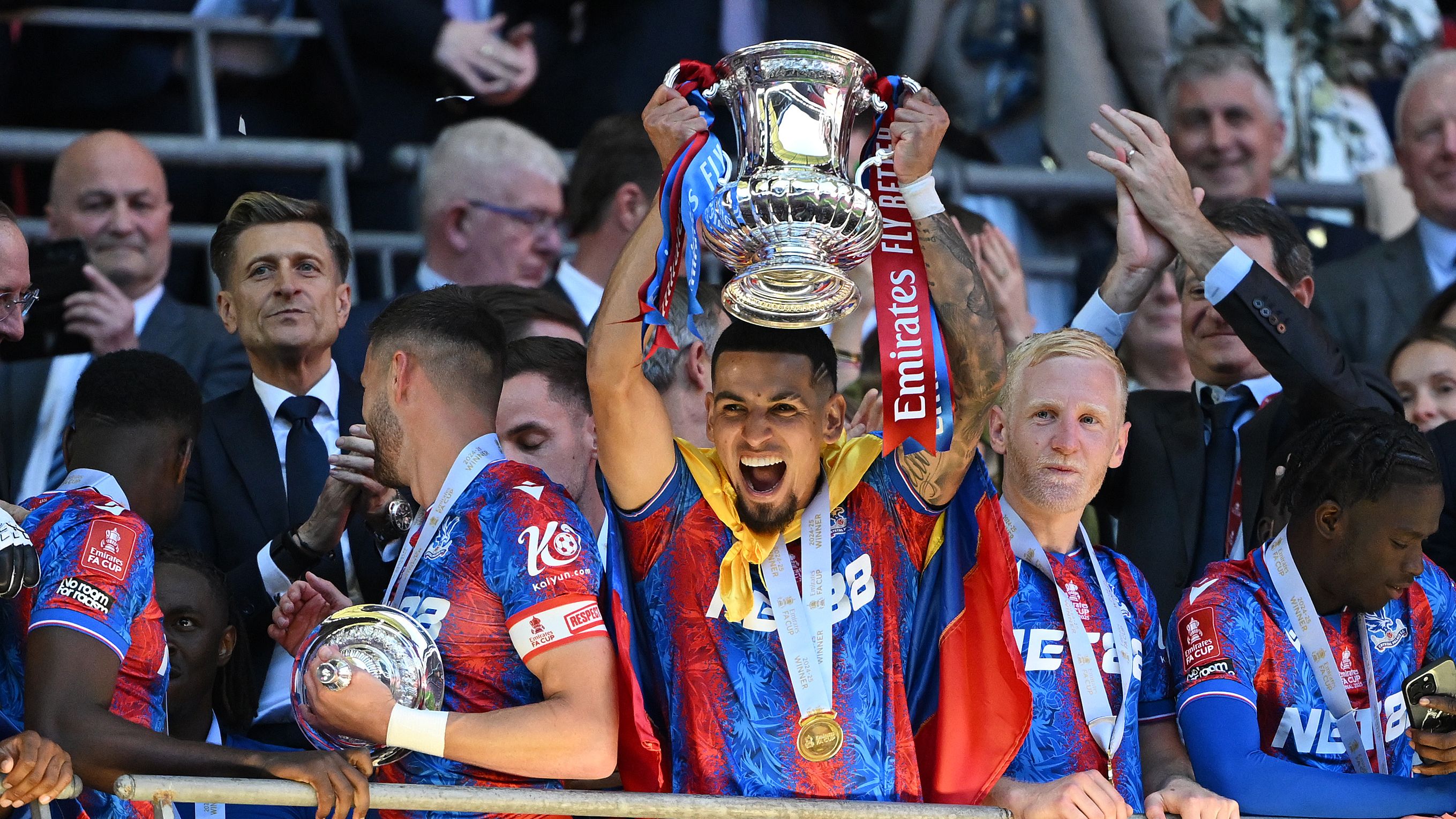The Bitter Aftermath of Crystal Palace’s Historic FA Cup Victory
In a turn of events that has left fans reeling, Crystal Palace‘s triumphant FA Cup win in 2025 has been tainted by a contentious UEFA decision. This unexpected setback highlights the rigid enforcement of multi-club ownership rules, stripping the team of its hard-earned spot in the Europa League and relegating it to the Conference League instead.
Crystal Palace’s FA Cup Triumph and the Overriding UEFA Controversy
The club, affectionately known as the Eagles, earned their place in the Europa League by clinching the FA Cup, marking their inaugural major honor. However, this achievement has been eclipsed by UEFA’s determination of a conflict arising from investor John Textor’s connections to both Crystal Palace and the French side Lyon.



UEFA’s Rules on Shared Ownership and the Resulting Demotion
Under UEFA guidelines, teams linked through common ownership cannot compete in the same European tournament. A strict cutoff date of March 1 was established for addressing these issues, and with Lyon’s return to Ligue 1 following the reversal of their drop, they secured a Europa League position, effectively displacing Crystal Palace to a lower-tier competition.
Chairman Steve Parish’s Strong Objections to the Verdict
In a candid discussion with Sky Sports News, Parish voiced his frustration over what he considers an unfair and inconsistent application of regulations that left his club with no viable options for compliance.
He remarked: “We’re deeply upset, especially for our loyal fans. Every football enthusiast should feel outraged on our behalf-it’s the ultimate aspiration to claim a trophy for the first time ever, only to have it snatched away like a misplaced jackpot. This hits hard for the team, the supporters, and everyone involved; it’s a dark moment for the sport.”
Parish added: “Sensible followers of the game will recognize this as a profound wrong against our club, and I sincerely hope intervention occurs, as I doubt anyone in football, including UEFA, desires this outcome. It’s absurd that legitimate qualifiers are barred due to some far-fetched technicality. We’re pursuing an appeal and exploring every possible route, though we’d rather see direct action to rectify this mess.”
Defending the Club’s Autonomy from Lyon
Parish firmly asserted that, operationally, Crystal Palace operates independently from Lyon, dismissing any suggestions of shared control.
“It’s common knowledge that John Textor or his associates at Eagle Football hold no controlling sway over Crystal Palace,” he explained. “No one disputes that we’re not entangled in a multi-club setup-there’s zero overlap in personnel, transfers, or dealings. We’ve inadvertently triggered a regulation that wasn’t designed for situations like ours.”
“This policy is unsustainable and will likely be revised. It’s baffling how the decision-makers arrived at their verdict despite our clear evidence that Textor lacks any real authority here-it’s a decision that just doesn’t align with the facts.”
Seeking Resolution Through Appeals and Higher Intervention
As Crystal Palace investigates legal challenges to overturn the ruling, Parish emphasized his preference for UEFA President Aleksander Ceferin or a top official to step in and address the perceived injustice.
“We think it’s feasible for Mr. Ceferin to act,” he noted. “There are key factors at play that deserve attention.”
“To start, it appears no other licensing rules impose such deadlines; others are still sorting out their affairs right now, like funding requirements due shortly with upcoming reviews. Imposing this timeline seems arbitrary.”
“Moreover, this is a mandate we couldn’t fulfill. They’ve established a standard that’s out of reach for Crystal Palace’s primary stakeholders, requiring a minor investor to divest or transfer shares-something beyond our control. It’s illogical to enforce penalties for non-compliance with an unattainable rule.”
The Wider Impact on European Football and Future Hopes
With the fallout from this significant administrative decision still unfolding, Crystal Palace holds out hope for a reversal or modification. For now, their aspirations for Europa League participation are suspended, and the club’s leaders insist this represents a critical misstep that not only disappoints fans and players but also questions the fairness of continental competitions. To Parish, this transcends mere rules-it’s about ensuring equity and celebrating true accomplishments rather than letting red tape overshadow victory.
Understanding the UEFA Ruling and Its Implications for Crystal Palace
Background on the UEFA Decision
UEFA’s recent ruling has stirred significant controversy in the world of football, particularly affecting clubs like Crystal Palace. For context, the decision involved the demotion of certain FA Cup winners to the UEFA Conference League, which many view as a punitive measure rather than a fair competitive adjustment. This UEFA ruling highlights ongoing debates about European football governance, where factors like financial fair play (FFP) regulations and club coefficient rankings play a major role.
In this case, Crystal Palace, as FA Cup winners, faced unexpected demotion due to UEFA’s updated criteria, which prioritize historical performance and financial stability. Keywords like “UEFA Conference League demotion” and “FA Cup winners injustice” have been trending among fans and analysts, reflecting widespread dissatisfaction. The ruling not only impacts team dynamics but also raises questions about the transparency of UEFA’s processes, with critics arguing it creates an uneven playing field for mid-tier clubs striving for European glory.
Steve Parish’s Strong Condemnation
Crystal Palace chairman Steve Parish has been vocal in his criticism, labeling the UEFA ruling as a “major injustice” that undermines the spirit of the game. Parish, known for his straightforward approach to football management, pointed out how this decision ignores the hard-earned successes of teams like Crystal Palace in domestic competitions.
- Key Statements from Parish: In recent interviews, Parish emphasized phrases like “UEFA’s injustice to FA Cup winners” to describe how the demotion feels like a slap in the face for clubs that invest heavily in player development and fan engagement. He argued that such rulings prioritize big-name clubs, potentially stifling growth for teams like Crystal Palace.
- Reasons Behind His Outcry: Parish highlighted financial burdens, noting that participating in the Conference League could strain budgets without the prestige of higher-tier competitions. For instance, he mentioned lost revenue from Champions League spots, forcing clubs to rethink strategies amid “Steve Parish UEFA criticism” discussions online.
This reaction isn’t isolated; Parish’s comments have fueled broader conversations about “Crystal Palace demotion controversy,” drawing attention from football enthusiasts who follow UEFA decisions closely.
The Impact on Crystal Palace and Its Fans
The demotion to the Conference League brings several challenges for Crystal Palace, affecting everything from squad planning to supporter morale. Let’s break this down:
- Financial and Operational Effects:
- Reduced prize money and exposure could limit transfer budgets, making it harder for Crystal Palace to attract top talent.
- Teams might need to adapt training regimens for the Conference League’s demanding schedule, as seen in past “FA Cup winners demotion” cases.
- Fan and Community Reactions:
- Many supporters feel this is an “injustice in European football,” with social media buzzing about “Steve Parish condemns UEFA” posts.
- Bullet points of fan feedback include concerns over ticket sales dropping and a potential dip in attendance, as the Conference League lacks the allure of the Europa League.
On a strategic level, Crystal Palace may have to focus more on youth academies and cost-effective signings to navigate this period, turning “UEFA ruling injustice” into a rallying point for resilience.
Broader Context of UEFA Rulings in Football
UEFA’s decisions often stem from efforts to maintain competitive balance, but they frequently spark debates about fairness. For example, similar rulings have affected other clubs, leading to what some call a “pattern of Conference League injustices.”
- Historical Precedents:
- H3: Past Demotions and Their Outcomes – Cases like other FA Cup winners facing similar fates show how UEFA’s coefficient system can disadvantage teams without consistent European success.
- H4: Financial Fair Play Angle – Rules enforcing FFP have been criticized for favoring wealthier clubs, with “UEFA Conference League demotion” often linked to these policies.
- Future Implications for Clubs:
- Clubs like Crystal Palace might push for reforms, advocating for more inclusive criteria in UEFA competitions.
- H4: Potential Reforms – Discussions around “Steve Parish UEFA injustice” could lead to changes, such as weighted points for domestic cup wins, to better reflect achievements like FA Cup victories.
This ongoing dialogue underscores how UEFA rulings influence the entire football ecosystem, encouraging fans to stay engaged with topics like “Crystal Palace chairman criticism” for insightful analysis.
How This Fits into the Bigger Football Landscape
While the focus is on Crystal Palace, this UEFA ruling has ripple effects across European football. Experts often discuss how such decisions impact league competitiveness, with “major injustice following demotion” becoming a common refrain. For Crystal Palace specifically, adapting to these changes could mean innovative approaches, like forging stronger partnerships or emphasizing home-grown players, to maintain their edge in the Premier League.
In summary of key takeaways:
- The ruling exposes vulnerabilities in UEFA’s framework.
- Parish’s stance highlights the human side of football governance.
- Fans can expect more “UEFA ruling Crystal Palace” developments as the season progresses.
This topic continues to evolve, offering valuable lessons on resilience and advocacy in sports.









